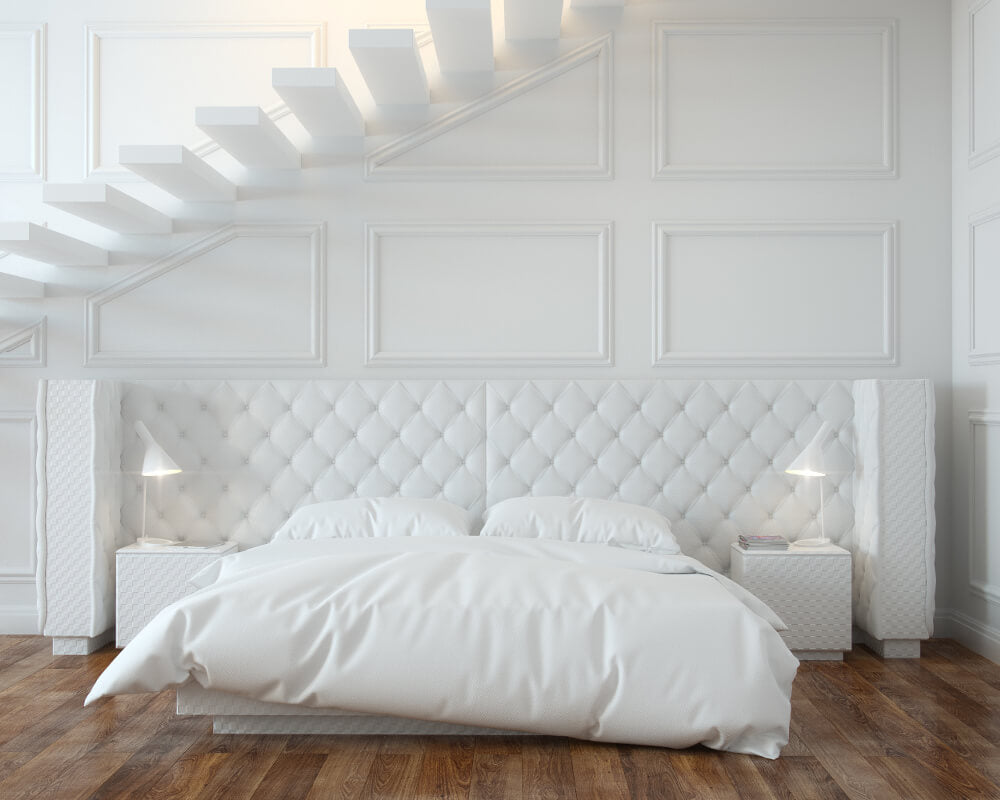Down duvets
Advantages
- Down duvets are soft and light and therefore ideal for the sleeper who moves a lot
- Moisture regulating and insulating
- Excellent heat retention: warmth in winter and coolness in summer
- A good down duvet lasts up to 15 years (if you maintain it properly)
- Easy to drape: they fall smoothly over you and your bed
- Down is not a breeding ground for dust mites
Disadvantages
- Some people are allergic to down and feathers
- Often a bit more expensive
In many down duvets, part of the filling consists of feathers and a smaller part of pure down. This ensures the filling is mixed. At White Cloudz, the duvet consists of at least 90% duck or goose down or from 100% goose down. We fill the duvets ourselves, so that we have maximum control over the quality we deliver. The higher the down percentage, the lighter and smoother the duvet is.
Down is a beautiful natural product. They are small, fluffy balls that grow close to the body of an adult water bird. Ducks and geese are the main suppliers of down. White Cloudz pays attention to animal welfare, we only purchase RDS-certified down. Our down is a waste product from the food industry, we do not keep animals for their feathers and down.
View down duvets
Thanks to our own production, we offer down duvets of the highest quality with high discounts.
Synthetic (polyester) duvets
Synthetic duvets are filled with fibers, some of which are hollow microfibers or balls made from them, usually made of polyester. A synthetic duvet is not as ventilated as the other types, but is usually the cheapest choice.
Advantages
- Cheap
- You can wash the duvet yourself (at a high temperature)
- dries faster than down after washing
Disadvantages
- Breath less well and you may therefore sweat more. This becomes even worse if the cover is made of synthetic material and not cotton.
- Polyester retains heat less well. The duvets are therefore heavier and thicker than (equally warm) down duvets.
- A less luxurious look than down duvets and often cheaper to finish.
- loses its volume and therefore its insulating effect faster than down.
Wool duvet
Wool is a natural material that contains lanolin and is therefore self-cleaning. Despite its insulating and moisture-absorbing properties, this natural material transports moisture to the outside air. Wool can contain up to 35% of its own weight in moisture without feeling clammy. However, it does take longer than with down. A wool duvet feels warm in winter and airy in summer. Do you perspire a lot? Then wool can be a good choice. However, wool is much heavier and less flexible than down.
Advantages
- can absorb a lot of moisture
- Self-cleaning
- Moisture absorbent
- Warm in winter, airy in summer
Disadvantages
- Absorbs moisture less quickly than down
- Dries less quickly than down or polyester
- Compared to down, less flexible
- Heavier than a down duvet
- Losses its volume and therefore its insulating effect faster than down
Did you know?
- A person spends a third of his life in bed?
- We turn over every 10 to 15 minutes in our sleep?
- The older you get, the less sleep you need?
- The optimal bedroom temperature is between 16 - 19 degrees?
- We lose an average of 0.75 liters of fluid at night through perspiration?
- Fresh air is very important for a good night's sleep?
Is your duvet worn out and are you getting cold? Bought a different size bed? Or just need more comfort? So it's time for a new duvet!
